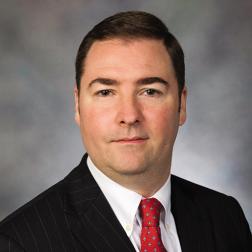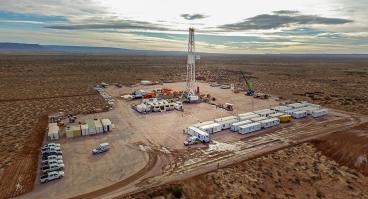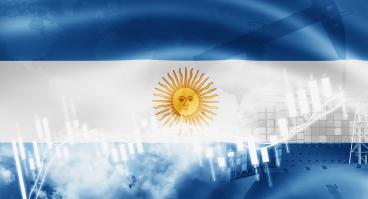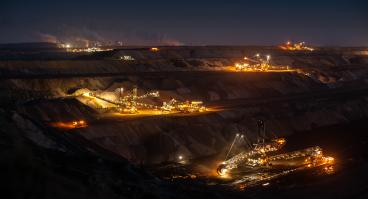The July 30 Gubernatorial Election in Chubut, Argentina’s No. 2 Petro-Province

Table of Contents
Author(s)
On July 30, Argentina’s second-most important petro-province will hold its quadrennial gubernatorial election. Unlike a majority of the Argentine provincial elections where the governing party at the provincial level is normally a strong favorite to win, the outcome in Chubut remains uncertain as two relatively evenly matched candidates face off, with the JxC’s Ignacio Torres a slight favorite to defeat Peronist Juan Pablo Luque, and in doing so, end 20 consecutive years of Peronist control of Chubut.
Both Torres and Luque are strong supporters of the oil and natural gas industry and can be expected to work well with foreign and domestic partners to maximize oil and natural gas production in Chubut. The main differences between these two Chubut gubernatorial candidates are their distinct ties to the leading presidential candidates who will be competing in the national elections in October under the governing Peronist Unión por la Patria (UP) and the opposition Juntos por el Cambio (JxC) banners.
After the province of Neuquén (home of the Vaca Muerta and Neuquén basin), Chubut is Argentina’s most important petro-province, and is the home of the San Jorge Gulf basin (Golfo San Jorge). Chubut accounts for 22% of Argentina’s petroleum production (double the volume of the next most prominent producing province) and 6% of Argentina’s natural gas production. The leading energy companies in Chubut are Pan American Energy, YPF, and TecPetrol.
Chubut has been run since 2003 by a Peronist governor, although at times one who was elected without the support of all of the different Peronist factions in the province. The current governor, Mariano Arcioni, was first elected as lieutenant governor in 2015 on a ticket with Mario Das Neves, and then assumed office as governor following Das Neves’ death in 2017. Arcioni won election as governor in his own right in 2019, defeating a rival Peronist candidate and a candidate of the opposition JxC. Arcioni is prevented by term limits from running for re-election.
Unlike the case in 2015 and 2019, Chubut’s Peronists have united in the Arriba Chubut (AC) alliance behind a single gubernatorial candidate, Juan Pablo Luque. Luque is the mayor of Comodoro Rivadavia, the province’s most populous city and hub of its oil and natural gas industry. His lieutenant governor candidate is the current lieutenant governor, Ricardo Sastre, a former mayor of Puerto Madryn. Peronism governs Argentina at the national level under a loose triumvirate led by former president (2007-2015) and current Vice President Cristina Fernández de Kirchner, current Minister of Economy and 2023 presidential candidate Sergio Massa, and President Alberto Fernández.
Luque’s rival is National Senator Ignacio “Nacho” Torres of Propuesta Federal (PRO) who is seconded on the JxC ticket by former National Deputy Gustavo Menna of the Unión Cívica Radical (UCR). The PRO and UCR are the two leading partners of the opposition JxC alliance at the national level. The JxC gubernatorial ticket is being supported by Jorge “Loma” Ávila, the longtime leader of the oil workers union in Chubut, which traditionally has backed Peronist candidates.
There are three other gubernatorial candidates, none of whom has any hope of winning the election. The member of this trio most likely to finish a distant third is César Treffinger of the Por la Libertad Independiente Chubutense (PLICH) alliance. In 2021 Treffinger ran unsuccessfully to represent Chubut in the Argentine Senate, coming in third place with 15% of the vote. The other two gubernatorial candidates are the Frente de Izquierda’s (FI) Emilse Saavedera and the Generación para un Encuentro Nacional’s (GEN) Oscar Petersen. In the 2019 gubernatorial election, the FI’s candidate won 3% of the vote and Petersen won 2%.
Whichever candidate wins a plurality of the vote on July 30 will be sworn in as the next governor of Chubut in December for a four-year term with the possibility of one consecutive re-election. The 27 members of the Chubut unicameral provincial legislature are elected concurrently with the governor for a four-year term in a province-wide district using closed lists. Whichever legislative list wins a plurality of the vote receives 16 seats, while the remaining 11 seats are divided among the other party and alliance lists using proportional representation.
At the national level, one of three individuals will be President of Argentina beginning on December 10, 2023. One is the Peronist candidate, Sergio Massa. The other two are City of Buenos Aires Chief of Government Horacio Rodríguez Larreta and former Minister of Security and National Deputy Patricia Bullrich, both of the PRO. Bullrich and Larreta will compete in an August 13 primary to determine which of the two will be the JxC presidential candidate in October.
Relations between the Chubut provincial government under the leadership of Torres and the national government would be notably more cordial and productive and feature less conflict if either Bullrich or Larreta is the next president rather than Massa. Conversely, relations between the Chubut provincial government under the leadership of Luque and the national government would be notably more cordial and productive and feature less conflict if Massa is the next president rather than Bullrich or Larreta.
This post originally appeared in the Forbes blog on Jul. 26, 2023.



